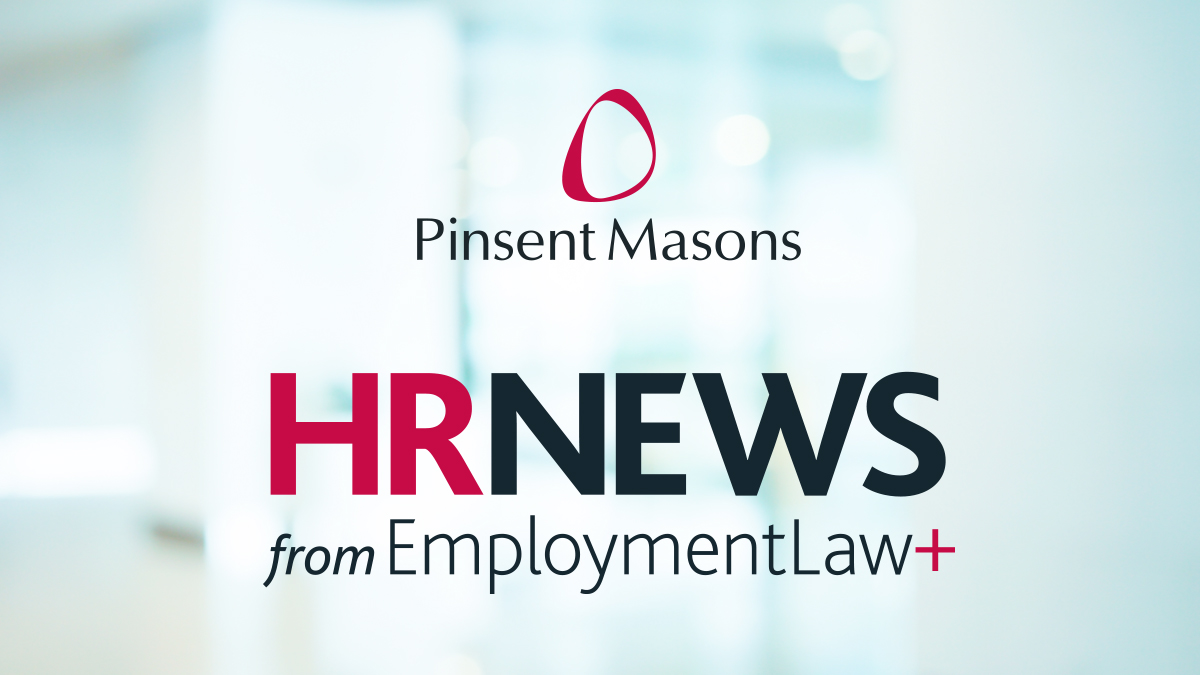As regular viewers will know, Northern Ireland’s Department for the Economy has published its formal response to the ‘Good Jobs’ consultation - a wide-ranging plan to update employment rights and bring Northern Ireland more closely into line with Great Britain. It’s one of the most significant employment law reforms in over a decade and a key priority for HR teams with staff in Northern Ireland.
In recent weeks we’ve already looked at the major proposals around zero hours contracts, holiday pay, and the right to disconnect, all of which could have a real impact on employers’ day-to-day operations. But another important, and perhaps more politically sensitive, is the proposal to strengthen trade union recognition and access. It’s a key development, especially for employers in unionised environments or those operating in health, transport, education, or utilities, where industrial relations are often a live issue.
The Department’s response paper, The Way Forward, outlines a clear commitment to enhancing union access and promoting collective bargaining. The aim is to improve fairness and transparency in the recognition process and ensure workers have a meaningful opportunity to engage with union representation. One of the key proposals is the introduction of a statutory Code of Practice on trade union access, particularly in workplaces where there is no existing recognition agreement. That would clarify when and how unions can access the workplace, what information employers should provide, and what obligations exist on both sides.
This is one area where Northern Ireland may end up going further than Great Britain. In GB, the Employment Rights Bill currently before Parliament does include some limited provisions on union access but stops short of fundamental reform. The government has shown little appetite to revisit the statutory recognition process more broadly and has resisted calls to replicate the type of stronger trade union access rights seen in parts of Europe. In contrast, the Northern Ireland Executive is clearly signalling a different direction of travel: one that gives unions a stronger footing in non-unionised workplaces and may make recognition more achievable where there is workforce support.
For employers, this means reviewing current practices, thinking ahead about recognition requests, and preparing for a more proactive regulatory environment around industrial relations.
So let’s get a view on this. Earlier I caught up with Belfast-based employment lawyer Laura McManus to discuss it. So what’s changing?”
Laura McManus: “So what's changing is that there are new rights to access unions. There are lower thresholds as to how many people are needed for a union to then seek recognition from the employer, and there are increased protections for employees who go on strike. So to dive down into each of those. Employers need to have procedures in place to allow employees to access unions through their work. That also includes digital access. A lot of the procedures around union access are quite dated - they all rely on paper - and so we're moving now to a more digital way forward. There's also a lowering of the threshold in that unions can ask for recognition from 21 employees to 10 employees and that’s pretty significant, actually, if you think of the number of small to medium enterprises that we have in Northern Ireland especially in the manufacturing industry. They could all potentially now have the opportunities for unions to seek recognition to negotiate on behalf of the workforce.”
Joe Glavina: “So maybe a role for HR? I’m thinking perhaps in terms of the communications piece.”
Laura McManus: “Yes, very much so, and the protections that have now increased for striking workers mean that HR have a really important role in their negotiation with the unions who are acting on behalf of the employees and, equally, their communication with the wider business so that they can, I suppose, dilute the information and send it out to the business in a way that, as always, is quickly and easily digested. So to be able to understand the risks of claims going to the tribunal, the amount of time that it would take for those claims to be dealt with and to resolve, either by settlement or withdrawal, or the tribunal actually hearing the claim. There's a financial liability on the other side of potentially a significant award to the employee, and a number of employees, if you think of the number of employees who could be striking. So I suppose the cumulative financial risk is high and that's another point for HR to be communicating back to the business.”
The Northern Ireland government’s response paper is called ‘The Way Forward’ and was published on 28 April. It sets out in detail the outline proposals for a new Employment Bill which will cover not only trade union access and recognition, but also zero hours contracts, holiday pay and the right to disconnect. Laura has already talked to this programme about all three of those issues and those programmes are available now for viewing from the Out-Law website. We’ve included a link to both of them in the transcript of this programme for you.
- Link to HRNews programme: ‘Northern Ireland moves ahead with new right to disconnect’
- Link to HRNews programme ‘Northern Ireland confirms crackdown on zero hours contracts’
- Link to HRNews programme: ‘NI aligns holiday pay with GB but omits two-year backstop’
- Link to ‘Good Jobs’ Employment Rights Bill – The Way Forward
Laura McManus tells HRNews about Northern Ireland’s ‘Good Jobs’ consultation outcome and the proposal to strengthen trade union access rights.

-
Transcript


